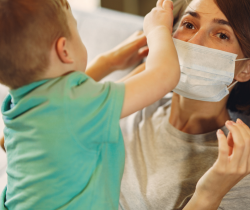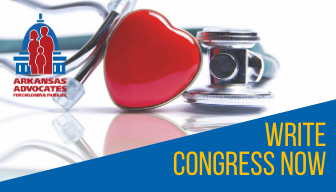
Families across the state are facing serious hardship due to the COVID-19 pandemic and resulting sharp economic decline, which likely will be severe and long-lasting. While Congress has passed a few bipartisan laws that provide some relief to families and businesses, much more needs to be done. In addition to cuts to the state budget that policymakers have been forced to make, our state unemployment rate jumped to over 10 percent – a 50-year record.
While the unemployment rate has improved incrementally, it has remained at historic highs. Our current unemployment rate stands at 9.5 percent, similar to our peak unemployment during the Great Recession.
Federal policymakers must take major, additional steps to protect people from COVID-19, assist those who were largely or entirely left out of the laws passed so far, and help prevent the economic harm from getting even worse — and they must keep those measures in place until the economy has fully recovered.
As members of Congress take these issues up again this month, we have issued a series of recommendations for them to consider. It’s important that temporary relief measures aimed at shoring up the economy and protecting families be tied to ongoing economic conditions to ensure that they don’t end prematurely. That includes provisions that were enacted in previous legislation, such as the boost to unemployment insurance, as well as the changes outlined below that we would like to see enacted in upcoming legislation.
You can write your congresspeople quickly at this link.
Ensuring a Sufficient and Equitable Economic Response:
- Additional state fiscal relief: State budget shortfalls could total more than $500 billion over the next few years, dwarfing the scope of the response to date.
- Restore Medicaid eligibility for families born in the Marshall Islands. Though children born in the Marshall Islands (and other “Freely Associated States”) have access to ARKids First, federal law prevents adults from accessing Medicaid coverage no matter how long they’ve lived in the U.S, worked and paid taxes. This disparity dates back to a 1996 legislative oversight. We’re long past due for a fix. It is included in the bill passed by the House of Representatives in May.
- Suspend implementation of the new “public charge” rule. The rule makes it more difficult for immigrant families to achieve lawful permanent residency status if they’ve received certain federal benefits (the current administration expanded the list of what counts against families). While some coronavirus-related services have been exempted, the rule should be suspended completely so that immigrant families know they can apply for and receive the services they need until the economy rebounds.
- Ensure that COVID-19-related services and treatments are available to the uninsured, regardless of immigration status. While the federal administration has promised this, fear of huge medical bills have kept some Arkansas families from seeking treatment.
- Extend economic support to immigrant families who were excluded from the relief package approved in March. Those who file tax returns using an Individual Taxpayer Identification Number (ITIN) should be able to file for unemployment benefits and other cash relief.
- Provide support for child care centers. Child care centers are critical to families and our economy, but many of them are struggling to keep their doors open during the pandemic. The next federal COVID-19 package should include significant financial relief specifically for child care centers so that they can stay in business and safely care for children during this time.
- Expand the Child Tax Credit. The next COVID-19 relief legislation should make the Child Tax Credit fully available for tax year 2020 to families that now receive only a partial credit or none at all because their earnings are too low. That would reduce financial hardship and racial income disparities while stimulating the economy. Extending the full $2,000 Child Tax Credit to low- and middle-income families would benefit roughly millions of families.
- Expand the Earned Income Tax Credit (EITC). Temporarily expanding the EITC for tax year 2020 for adults not raising children in their home would boost the incomes of those earning low wages, including those doing essential work to help the country weather COVID-19. More than 150,000 Arkansan workers would benefit from this policy.
SNAP Recommendations:
- Increase the maximum SNAP benefit by 15 percent and keep that in effect at least until the labor market recovers. At the height of the Great Recession in 2009, the passage of the American Recovery and Reinvestment Act helped prevent large increases in poverty and hunger by increasing the maximum SNAP benefit by 13.6 percent, totaling to $1.74 per person per meal.
- Increase the minimum SNAP benefit, or the lowest amount that a person can receive in monthly benefits. It’s at $16 now but should be increased to $30. This would help families who experience a sudden drop in their earnings or whose temporary period of unemployment will drag on – a situation many millions are likely to face, with substantial parts of the economy now shutting down.
- Support the recently introduced Allowing Steady Savings by Eliminating Tests (ASSET) Act, which would eliminate asset limits for SNAP, TANF, and the Low-Income Housing Energy Assistance Program (LIHEAP). This is of particular importance in Arkansas, because we are one of only 10 states that have the lowest asset limits in place. The federal (and Arkansas) asset limit is set at $2,250, or $3,500 for households with an elderly or disabled member. States are permitted to raise or eliminate the asset limit for households that meet the eligibility requirements of other related programs, but Arkansas has not. Asset limits serve as a barrier to economic security and mobility by actively discouraging families from attempting to save and build the resources they need to get ahead.
Health Recommendations
A new study released this week reports that 5.4 million Americans lost health insurance between February and May, mostly because of job losses – more than have ever lost coverage in a single year. Congress must:
- Increase the federal matching rate for Medicaid by a total 14 percentage points over the pre-pandemic rate. That would take the federal match in Arkansas to 85 percent (meaning the state would pay 15 percent) until the economy recovers from the damage it has incurred from COVID-19. Any action should ensure that the U.S. Department of Health and Human Services does not continue to pursue changes in the Medicaid Financial Accountability Regulation. That’s a proposed rule meant to curb Medicaid spending and change provider reimbursement methods.
- Cover the full costs of COVID-19 treatment for all individuals. People from all income levels and with varying types of insurance coverage should be assured that they will be covered for charges associated with the treatment of COVID-19. This federal legislation should ensure that no one faces surprise medical bills as a result of out-of-network COVID-19 treatment.
- Provide insurance affordability assistance. Premium assistance should be made available for the thousands of individuals who have lost employment, including making sure that these individuals can purchase individual or family plans. Plans on the Health Insurance Marketplace should be made more available and accessible.
- Ensure equitable access to COVID-19 testing and treatment. Immigrants should receive full access to screening, testing, and treatment for COVID-19 without any cost-sharing. Funding should be made available for language assistance, in order to ensure this full access can occur. Within communities where health disparities have been identified, funding should be targeted to require HHS to collect demographic data, including: race, ethnicity, geographic location, and primary language. Funding should be targeted for increasing the availability of testing and treatment in African American communities.
- Cover the cost of coverage through the COBRA – the Consolidated Omnibus Budget Reconciliation Act. For people facing a significant reduction in income and loss of insurance, but unable to afford the premium, Congress should provide assistance to cover the cost of coverage through COBRA to individuals who are not be eligible for Medicaid or the Marketplace coverage.
- Expand use of health savings accounts. Congress should provide individuals and families with access to additional resources to cover the cost of coverage by extending certain qualifying expenses.
- Open a special enrollment period for the Health Insurance Marketplace. Congress should create a new, one-time Special Enrollment Period for enrollment in the Marketplace specifically for those individuals who are uninsured and not otherwise eligible to enroll yet.
- Increase eligibility for federal subsidies for the Health Insurance Marketplace. Congress should increase the financial assistance for people who already rely on the Health Insurance Marketplace for coverage by decreasing the percentage required for contribution to the cost of premiums.

